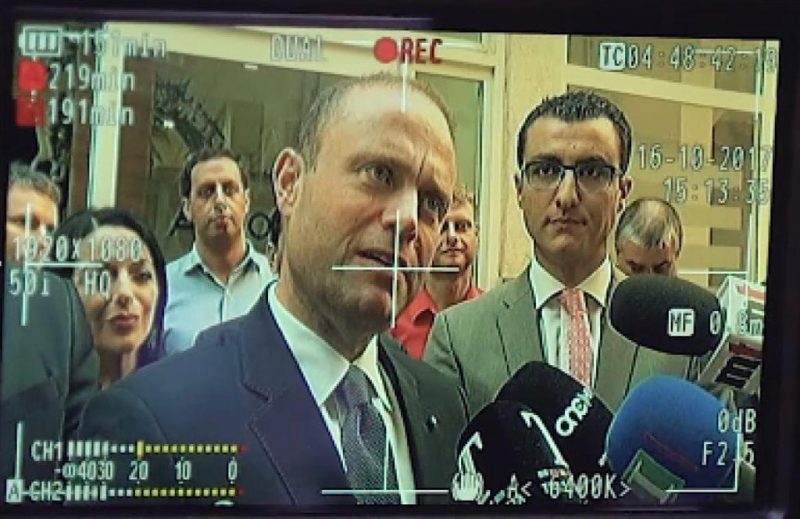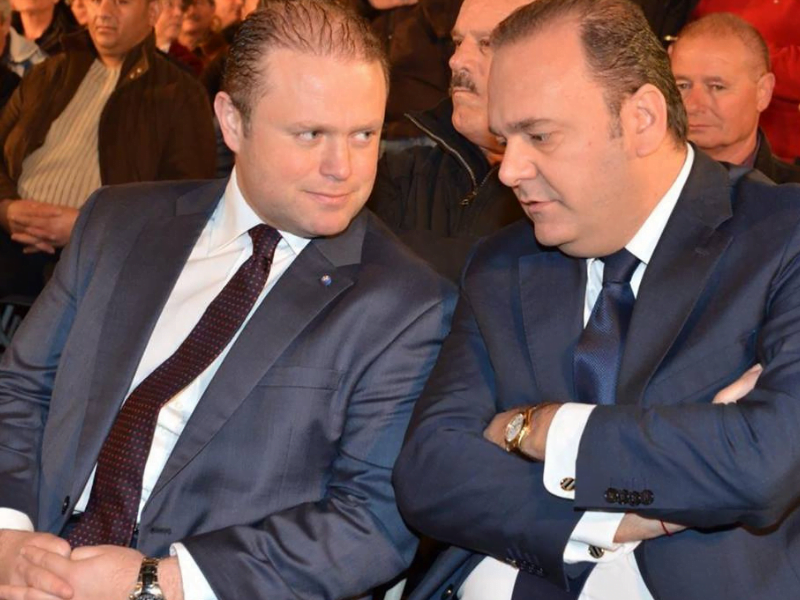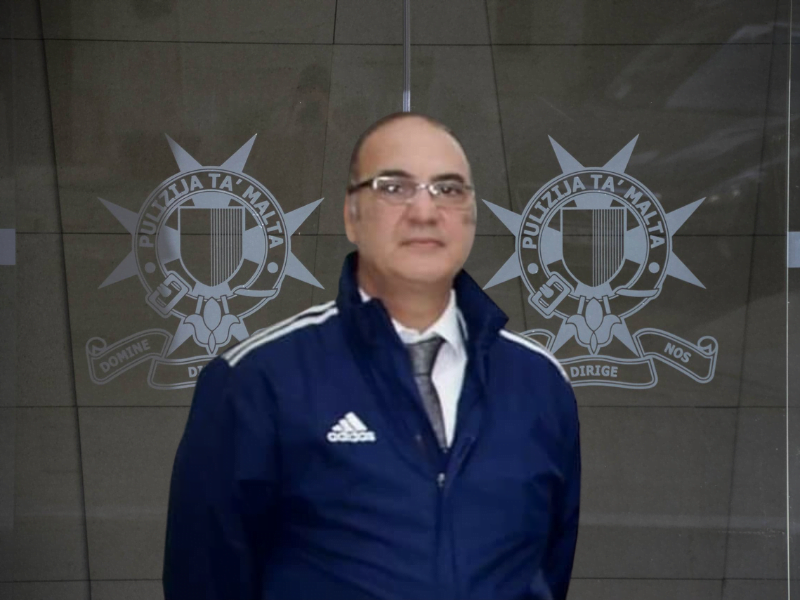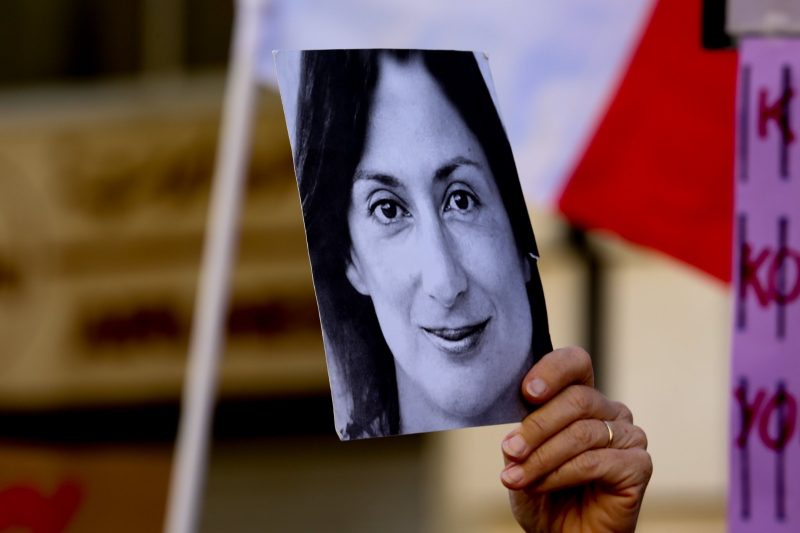The public inquiry into the assassination of journalist Daphne Caruana Galizia is expected to present its findings on 15 July.
The board’s determination to fight for justice has won it admiration abroad even as it came under intense political pressure at home.
The Maltese government did everything it could to resist its obligation to hold the inquiry under Article 2 of the European Convention on Human Rights, insisting it would jeopardise the criminal proceedings then underway against the accused hitmen.
When the Council of Europe insisted after two years of campaigning by the family of the slain journalist, then prime minister Joseph Muscat attempted to load the board with Labour Party loyalists and to limit its terms of reference.
The government only gave in under pressure from Special Rapporteur Pieter Omtzigt, and after meetings with the Caruana Galizia family.
Tasked with determining whether the State facilitated Daphne Caruana Galizia’s murder or failed to prevent it, the details of testimony in the public inquiry raised alarming concerns about widespread corruption, political involvement in the plot, and efforts to obstruct justice by shielding those involved from investigation.
In December 2020, Special Rapporteur for the Parliamentary Assembly of the Council of Europe, Pieter Omtzigt, wrote, “In a few months, the Daphne Caruana Galizia inquiry has done more to expose the corruption, misgovernment and criminal conspiracies that plagued Malta at the time of her death than all of the endless, opaque and ineffectual magisterial inquiries put together”.
Despite the often-shocking revelations, none of the public officials involved in these acts has been charged.
Former prime minister Joseph Muscat resigned in disgrace in December 2019 after two months of street protests.
He is still suing Daphne Caruana Galizia, more than three years after she was killed on his watch, over her report that his wife was the ultimate beneficial owner of a secret offshore structure revealed in the Panama Papers.
He insists he will only drop the suit if the Caruana Galizia family “acknowledges” the results of a magisterial inquiry into the matter, the terms of which were written by Muscat himself and led to no answers.
The magistrate who concluded an inquiry with no conclusion was soon after promoted to judge.

A screenshot showing the timestamp of 3.15pm on 16 October 2017, just after Caruana Galizia was murdered.
A complicated web
Joseph Muscat’s name came up repeatedly in connection with corruption at the highest levels, carried out by public and police officials who answered directly to him.
He also featured heavily in intimate chats found on the phone of Yorgen Fenech, who is accused of commissioning the journalist’s assassination. He has been questioned by police several times, but never charged.
His chief of staff, Keith Schembri, was charged with money laundering and other financial crimes in connection to the purchase of printing machines by Progress Press, publishers of The Times of Malta.
Like Joseph Muscat, he received lavish gifts from Yorgen Fenech and featured heavily in intimate chats found on the accused mastermind’s phone.
Schembri has never been charged in relation to Caruana Galizia’s murder, though Fenech claims he was the real mastermind.
Konrad Mizzi, the minister who signed his name to every corrupt deal entered into by the Muscat administration, was also questioned by police but never charged.
Former Economy Minister Chris Cardona was named repeatedly by the accused hitmen in connection with an alleged parallel plot to kill Caruana Galizia, an accusation he insists is “a frame-up”. He resigned from parliament soon after Joseph Muscat. He has also been questioned by police but never charged.

Former Economy Minister Chris Cardona and Joseph Muscat. Image: Running Commentary.
Parliamentary Secretary Rosianne Cutajar was forced to resign from her cabinet role last week after an investigation by the Standards Commissioner found that she had accepted large sums of money from a property deal involving Yorgen Fenech, tried to evade tax, and failed to declare income in her parliamentary declaration of assets.
Minister Carmelo Abela has been named by the accused hitmen in connection with a failed bank heist involving the hitman involved in the journalist’s death. He continues to deny involvement in the crime and remains in cabinet.
The government gave a phantom job to self-confessed middleman Melvin Theuma. Several other Labour Party loyalists were given lucrative positions within government institutions and agencies before Joseph Muscat was ejected from office. When testifying before the public inquiry, they all said they couldn’t remember anything.
Muscat was replaced by his chosen successor and legal advisor, Robert Abela, whose campaign promise of “continuity” was reflected in his own attitude towards the public inquiry, which he accused of overstepping its mandate for partisan reasons, and of dragging things on so board members could take more pay.
Government ministers and insiders weren’t the only untouchables connected to systemic corruption under Joseph Muscat. The heads of key regulatory authorities were also thoroughly compromised.
It’s a complicated web, involving a larger cast of characters that stretches from cabinet ministers to the heads of regulatory authorities to compromised top police officials, as testimony at the public inquiry has shown.
Layers of cover
Deputy Police Commissioner Silvio Valletta vacationed with the accused murder mastermind on his yacht in September 2018, at a time when Fenech was already the lead suspect. At the time, Silvio Valletta was married to a Minister. He resigned from the force but was never charged.
Former Police Commissioner Lawrence Cutajar is being investigated for “possible collusion” after being caught holding secret meetings with an associate of middleman Melvin Theuma without the knowledge of the investigative team. He was removed in January 2020 — and given a lucrative consulting contract with the Home Affairs Ministry on the same day. He has not been charged.
Ian Abdilla, former head of the police Economic Crimes Unit, admitted to the board that he failed to act on any of the Panama Papers revelations and did not question those at the helm of government exposed. He was removed from the unit but remains Assistant Police Commissioner. He has not been charged.
Former Attorney General Peter Grech admitted to the board that he issued written advice to the police “to tread very carefully on the Panama Papers”, which the slain journalist first brought to light in Malta. He was concerned about ‘national stability’. He retired in September 2020. He has not been investigated or charged.
Had any of these law enforcement officials acted on the corruption first exposed by Daphne Caruana Galizia rather than shield top politicians from scrutiny, she would still be alive today.
The only police officer to be charged is Ray Aquilina, a former superintendent from the Economic Crimes Unit suspected of leaking information on the murder investigation.

Ex-police superintendent Raymond Aquilina.
The operators of accounting firm Nexia BT that set up all these offshore companies, Brian Tonna and Karl Cini, were charged with money laundering and other financial crimes in connection to former chief of staff Keith Schembri’s suspect deal with Malta’s leading newspaper, but they have not been charged in relation to any of the other corruption scandals exposed by Caruana Galizia.
A grim picture
Malta’s failure to act against politicians linked to corruption and money laundering was a major factor in the country’s recent greylisting by the Financial Action Task Force (FATF).
Nearly four years after her death, evidence and testimonies indicate there are still people involved in the journalist’s murder and its cover-up that have yet to be investigated and charged.
Apart from Yorgen Fenech, the only people charged in connection with the brutal murder of Daphne Caruana Galizia are the accused hitmen George and Alfred Degiorgio, and Robert Agius and Jamie Vella, the men alleged to have supplied them with the bomb.
Court cases in Malta drag on for years. Most of these cases are still at the stage of compilation of evidence; the actual trials have not yet begun.
Melvin Theuma, the middleman who arranged the hit, was given a presidential pardon to testify against Yorgen Fenech who is accused of being the mastermind. The Degiorgio’s accomplice, Vince Muscat, also turned State’s witness in exchange for a plea bargain deal.
The public inquiry has been given access to the contents of Yorgen Fenech’s phone, which is expected to shed further light on intimate connections between the accused mastermind, Maltese politicians, and high ranking police officials. It remains to be seen whether any of them will be held responsible for their crimes.
The board is scheduled to deliver its findings to the prime minister and attorney general on 15 July and will publish the report within eight working days, according to the terms of reference. The prime minister must also table the report in parliament within five working days of receiving it.
It’s then up to the government to decide what to do with it. In a context where the government is facing other pressures in the months leading up to an election, the Labour Party will have difficulty justifying with its supporters the implementation of reforms resulting from a public inquiry on the murder of a journalist the same party spent years branding as the enemy.
Joseph Muscat may have resigned, but his chosen replacement ran a campaign on ‘continuity’ and the tactics have not changed.
The article is part of a project by the Justice for Journalists Foundation focusing on weekly updates on developments in the case for justice for Daphne Caruana Galizia.














Its all yet to be seen by the Mizbla ta’ Kastilja gang.
360 degrees corruption – il-muvument korrott gab lil Malta gharkubtejha grazzi ghall-akbar ex pm korrott li qatt kellha Malta bl-ghajnuna tal-konsukent tieghu rob u l-korrotti ministri, ex-ministri, people of trust u junior ministers, kollha fi hdan il-muvument KORROTT.
If the Inquiry does not recommend chopping of heads (with people not allowed to work with the Civil Service in future), it would have been a waste of time.
If this turns out to be throttled yet again by the untouchables then Pieter Omtzigt, the 635 MEPs who voted on 29 April that they had no confidence in the ability of the Government to deliver justice and the FATF decision to “ grey list” Malta will surely shake their collective heads in disbelief, despair.
They will however have sufficient ammunition in their collective lockers to persuade the rest of the world that Malta has joined the other “ basket cases” of corrupt jurisdictions at the bottom of the swamp to be avoided at all costs.
The saddest part will be all the honest decent citizens paying the price for the excesses of the untouchables who have been allowed to run riot with total impunity for far too long.
The number of suspects questioned but never charged is astonishing. Is it a proper investigation interview, or a cup of tea and a chat about the weather?
After the grey listing,they should all be questioned again,properly.
Accumulation of even more criminal kinetic energy will only put more pressure on the cabal’s nihilistic foundations.